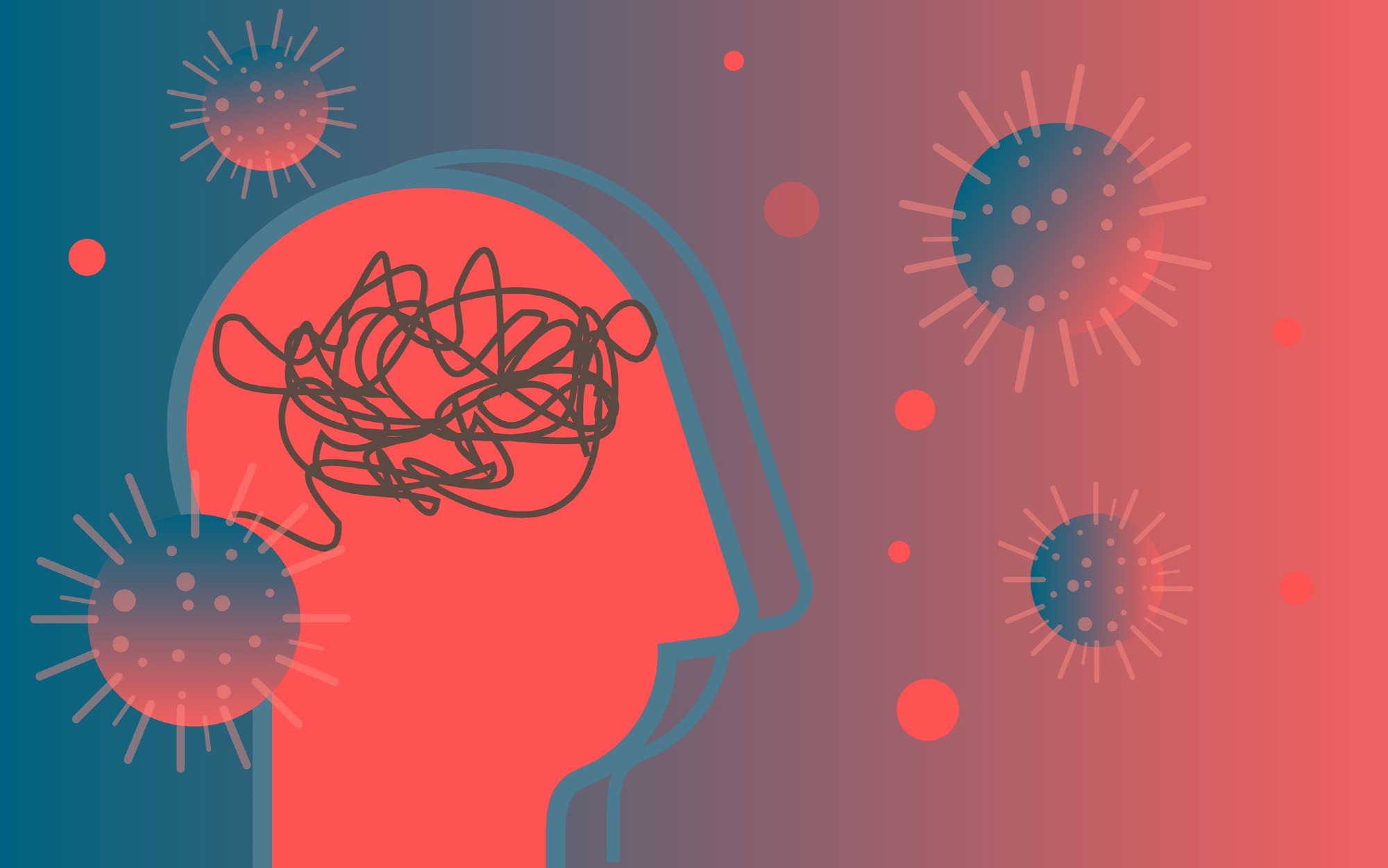In a recent study published in the journal Nature Human Behaviour, researchers assessed the long-term psychiatric effects and vaccination's role on mental health in coronavirus disease 2019 (COVID-19) survivors using United Kingdom (UK) Biobank data.
 Study: Long-term risk of psychiatric disorder and psychotropic prescription after SARS-CoV-2 infection among UK general population. Image Credit: DesignPrax / Shutterstock
Study: Long-term risk of psychiatric disorder and psychotropic prescription after SARS-CoV-2 infection among UK general population. Image Credit: DesignPrax / Shutterstock
Background
To date, the global health crisis caused by severe acute respiratory syndrome coronavirus 2 (SARS‑CoV‑2) has resulted in over 774 million cases and 7 million deaths. The virus affects the respiratory system and has significant implications for metabolic, renal, and cardiovascular health during and post-infection. Additionally, an increase in neurological and psychiatric disorders among both severe and mild COVID-19 cases has been documented. However, existing studies, mainly based on electronic health records (EHR), face limitations due to potential biases and the lack of comprehensive data on factors like vaccination. The effectiveness of vaccination in reducing long-term psychiatric complications remains unclear, highlighting the need for further research to understand COVID-19's extended mental health impacts and the protective benefits of vaccination.
About the study
The present study utilized data from the UK Biobank, with participants providing written informed consent. The UK Biobank recruited over 500,000 individuals aged 40-70 from the UK, gathering extensive baseline data and following participants through linkage to health records. SARS-CoV-2 infection data came from Public Health England's microbiology database, while information on psychiatric diagnoses and prescriptions was sourced from health statistics and prescription databases.
Participants were categorized into different groups based on their SARS-CoV-2 infection status and test results. The infection group included those with a positive polymerase chain reaction (PCR) test for SARS-CoV-2, while contemporary controls were individuals with no evidence of infection. A historical control group provided a pre-pandemic comparison, and an additional group included participants with negative SARS-CoV-2 tests. The study focused on psychiatric outcomes, identifying disorders and prescriptions for psychotropic medications. Mental health outcomes were analyzed both as new incidents and as part of ongoing or recurrent conditions, adjusting for a range of covariates to account for potential confounding factors.
Statistical analyses employed propensity score weighting and matching to balance baseline characteristics across groups, using Cox proportional hazards regression models to estimate risks and incidence rates of mental health conditions. Subgroup analyses explored the impact of demographic factors and COVID-19-related contextual factors, including vaccination status and testing settings, on psychiatric outcomes. Sensitivity analyses and the use of positive and negative outcome controls aimed to validate the study's design and findings, assessing the robustness of the results and the potential for bias.
Study results
In the study, researchers focused on 26,101 participants who had tested positive for SARS-CoV-2, compared against 380,337 contemporary controls and 390,621 historical controls. The study tracked the incidence of psychiatric diagnoses and psychotropic prescription usage over a median follow-up period of around a year. Initial analyses revealed significant demographic and health disparities between the COVID-19 group and the contemporary controls, which were later balanced through weighting techniques to ensure accurate comparisons.
The study's findings were alarming, indicating a heightened risk of various psychiatric disorders among COVID-19 survivors, including psychotic, mood, and anxiety disorders, with notable increases in prescriptions for antipsychotics, antidepressants, benzodiazepines, mood stabilizers, and opioids. Particularly, mood disorders such as depressive episodes and anxiety disorders like panic disorder, generalized anxiety disorder, and post-traumatic stress disorder were more prevalent among those who had contracted COVID-19. Substance use disorders showed a marginal increase, with a specific rise in alcohol use disorder, while the risk of sleep disorders also saw an uptick.
These trends persisted across several subgroup analyses, affirming the consistency of the increased risk of psychiatric outcomes across different demographic segments. When delving into the details of infection settings and vaccination statuses, the research highlighted a complex picture where non-breakthrough infections (those occurring in unvaccinated or partially vaccinated individuals) presented a higher risk for both new and recurring mental health issues. Interestingly, breakthrough infections did not significantly alter the risk profile for psychiatric diagnoses, although they did correlate with an increased likelihood of psychotropic medication prescriptions.
Further comparisons with the historical control group reinforced the study's initial findings, showcasing a broad increase in mental health risks for COVID-19 survivors. However, when the infected cohort was matched against a test-negative control group, the results became more subtle, with no significant differences in the risk for psychotropic prescriptions, hinting at the complex interplay between COVID-19, mental health, and healthcare behaviors.
The study's robust methodology extended to the application of positive and negative outcome controls, validating its findings against known long-COVID symptoms such as fatigue and dyspnoea and ensuring no significant associations were found with unrelated health outcomes like skin neoplasms and follicular cysts. Sensitivity analyses further solidified the primary conclusions, demonstrating the heightened risk of psychiatric disorders in COVID-19 survivors, particularly those diagnosed in a hospital setting, and underscored the urgent need for targeted mental health interventions for this vulnerable population.
Journal reference:
- Wang, Y., Su, B., Xie, J. et al. Long-term risk of psychiatric disorder and psychotropic prescription after SARS-CoV-2 infection among UK general population. Nat Hum Behav (2024), DOI- 10.1038/s41562-024-01853-4, https://www.nature.com/articles/s41562-024-01853-4